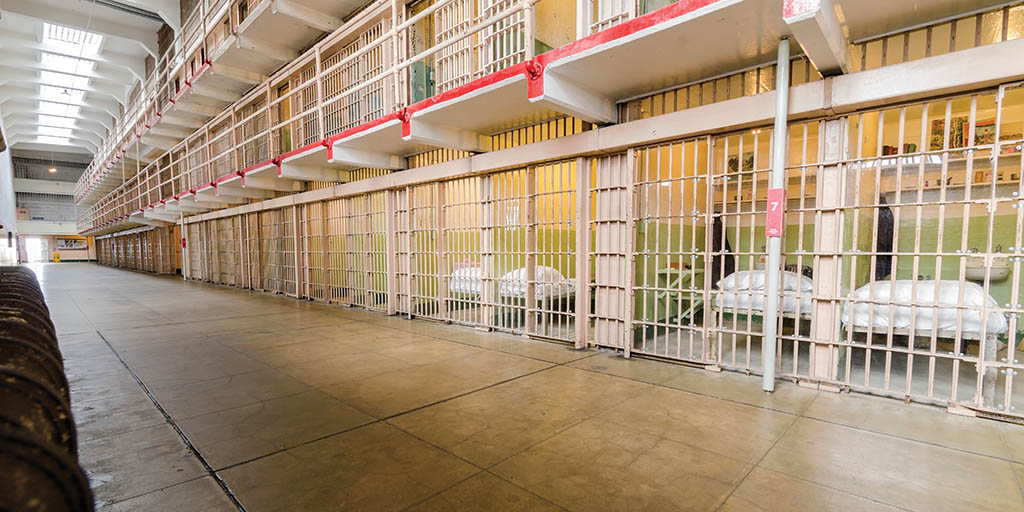Rumours of Grace: It's restorative justice week
 CREDIT: F8GRAPHER BY THINKSTOCK
CREDIT: F8GRAPHER BY THINKSTOCKLocking criminals up behind metal bars, keeping them away from the world and hoping they come out a new and improved person is, in some cases, not the best answer. Restorative justice gives the criminal a second chance and a way to understand why the crime was committed in the first place.
The inside of the building is lined with hard materials so that the noises of doors opening and slamming shut are magnified. The hundreds of people housed in it are kept in locked cells and permitted out only at required times such as for meals and outdoor recreation. If you have a friend there you may visit, but you will have to talk using a hand-held telephone set.
Many of those who are kept in the facility know all about pecking orders. Those at the top have bullied themselves there and woe unto those at the bottom.
If you go online you will easily find this institution, the Elgin-Middlesex Detention Centre. You may have driven by it many times on Exeter Road without realizing that it is what is usually called a jail. And if you poke around the web pages you will soon receive the impression that it is a place that is hard, not only on the inmates, but also on the staff.
Apparently a visitor can even post a review of the centre and give it a star rating. I found just one review and it is not flattering. “Horrible experience”, and that comment is followed by a one star rating.
As someone who spends time each week as a chaplain to youth in custody, I have become aware that there are many problems with our provincial and federal corrections systems. One of them is that people who are convicted often seem to emerge from jail worse than than when they entered.
Another problem is that many of the convicted do not feel encouraged to take ownership of what they have done. The tendency is for an accused person to admit to guilt only if there is virtually no way for lawyers to mount a defense.
The process of arrest, charge, hearing or trial is much like a high stakes game for those caught in it. Victims typically do not find much consolation at the end of the day. And perpetrators tend to lack empathy for the people whose lives they have damaged.
For these and related reasons, churches across Canada have for several decades now been encouraging a different approach. It is called restorative justice (RJ).
The premise of RJ is that a crime is not a singular, isolated event that damages not only the victim(s), rather a single crime damages a large number of relationships.
Further, a crime undermines the hopes and the future of families and communities. For example, if a storeowner is robbed at knifepoint, the owner and her or his family may experience fear, anxiety and other emotional traumas. If the perpetrator involves friends in the incident, those friends also stand to be arrested and may have a criminal record (typically reset to zero if the crime[s] took place before the person turned 18).
If the perpetrator has a family, their children, spouse and others will be negatively impacted. For example, parents of those who have been convicted do not find themselves sleeping better if one of their children is in custody. It is the goal of those who lead RJ sessions that offenders realize the impact of their actions.
It is also a goal that victims come to a greater understanding of what caused the crime that was committed against them. Many who get into trouble with the courts have had a difficult start in life. Often their parents have significant issues that make it difficult for them to create a positive family environment.
Added to this, there is often some combination of mental health issues, addiction, exposure to drugs and alcohol, early familiarity with crime, and an environment where verbal, emotional or physical abuse is present.
Where RJ is practised, the goal is for the offender especially, but also the victim, to gain a better understanding and even to come to an agreement about what will be done in light of the crime that was committed.
Leaders of RJ work to give offenders an opportunity to not merely serve time, but to work for the healing of the people and the community they have injured. They work to give the opportunity to victimized individuals and communities to better understand the troubled people who live among them and, if possible, to give them a second chance.
This week, why not check out a church website such as that of the Anglican, Catholic, Christian Reformed, Presbyterian or Baptist churches. You may be intrigued by what you discover if you follow the links to restorative justice and how it is being recognized this week throughout Canada and the world.
Editorial opinions or comments expressed in this online edition of Interrobang newspaper reflect the views of the writer and are not those of the Interrobang or the Fanshawe Student Union. The Interrobang is published weekly by the Fanshawe Student Union at 1001 Fanshawe College Blvd., P.O. Box 7005, London, Ontario, N5Y 5R6 and distributed through the Fanshawe College community. Letters to the editor are welcome. All letters are subject to editing and should be emailed. All letters must be accompanied by contact information. Letters can also be submitted online by clicking here.














